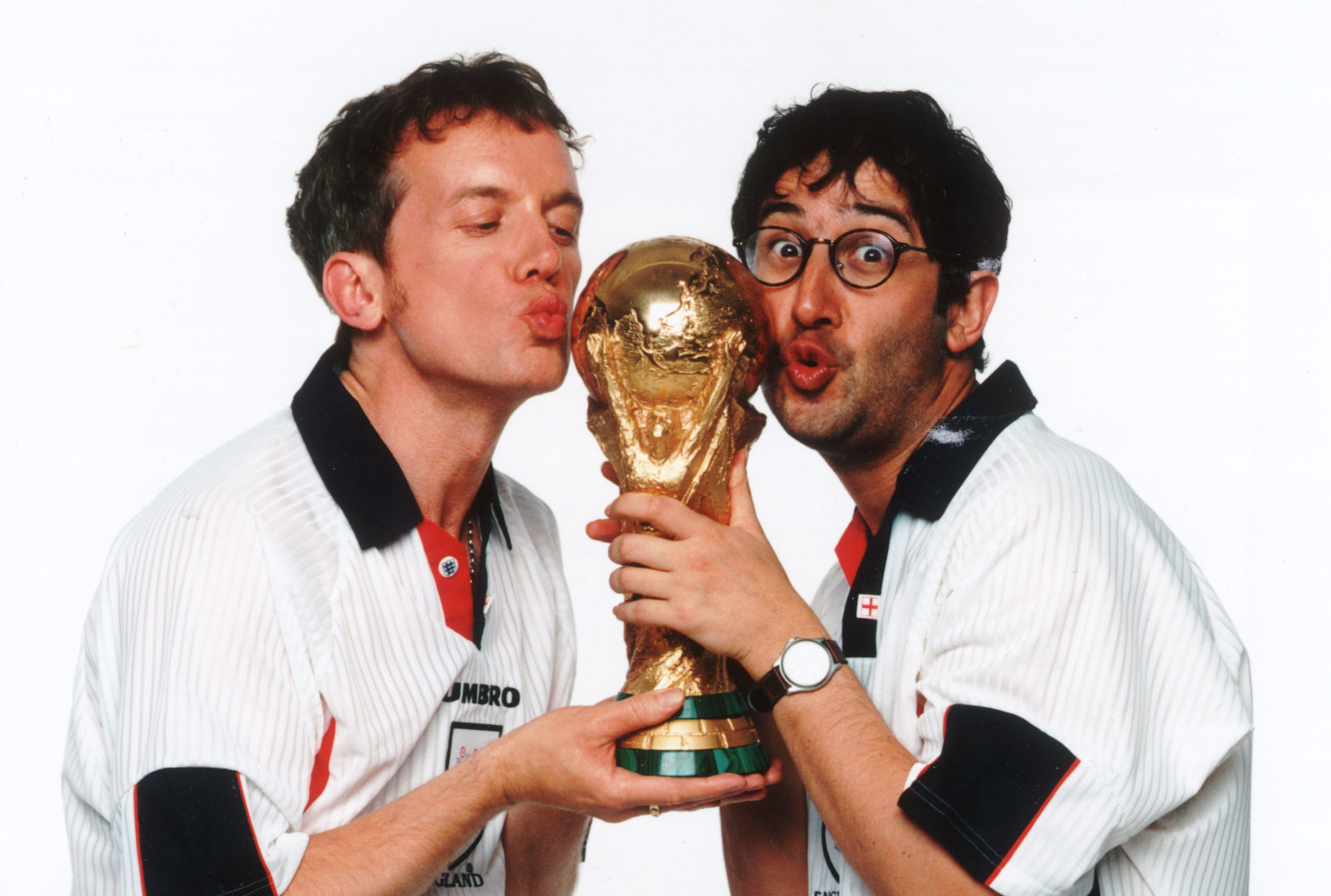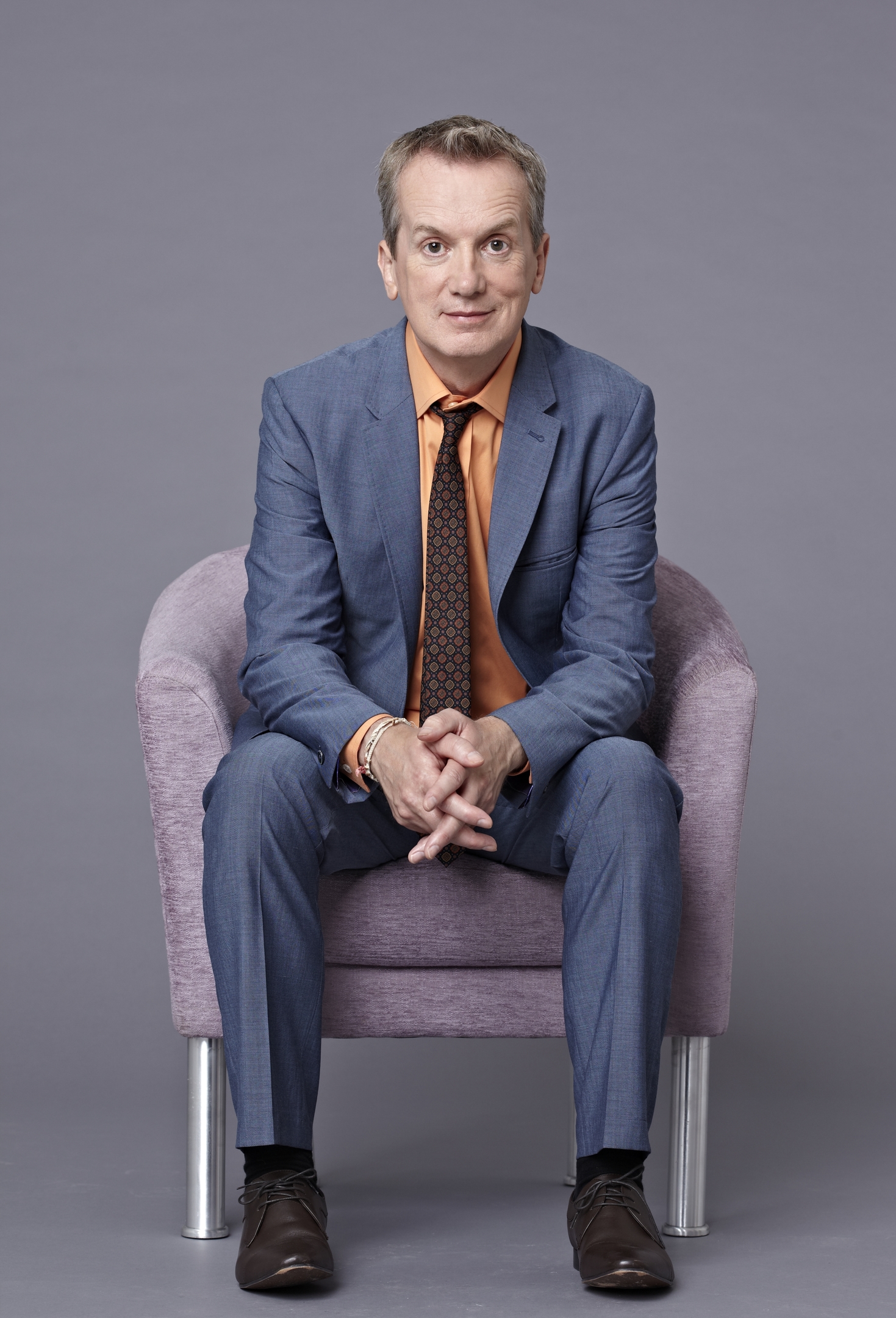
COMEDIAN, actor and presenter Frank Skinner is known for many things but, every two years, as long as England stay in the World Cup or European Championships, he is most famous for three little words. Football’s Coming Home.
It became England’s anthem at Euro ’96 and has continued to be dusted down ever two years – for a few games, at least – as the Three Lions have a wee bit of a roar then get knocked out.
Anyway, the infuriatingly catchy, and for many Scots, just infuriating, tune is riding high in the charts again as England prepare for the knockout round in Russia but, this summer, Skinner’s attention is divided as he prepares to debut his first play at the Edinburgh Fringe.
It was at the Fringe 30 years ago that Frank, who had already been described by a pal’s girlfriend as “30 and on the scrapheap”, decided to try comedy.
So it seems appropriate the festival will also be the venue for the comedian and presenter’s first attempt at being a playwright.
The 61-year-old host of Room 101 is part of a BBC Arts initiative called DEBUT, which approached four writers who have never written for the stage and asked them to pen a play to be performed at the Fringe.
“I had never thought about writing a play before, but when I received the call – and I was told it would be in Edinburgh for four weeks – I immediately said yes.
“I’ve met people who have written plays, and when you speak to them a couple of years later they are still trying to get it on the stage, so this is quite unusual for it to happen like this.
“I could probably write a chart of my life and career that would be a map of Edinburgh – this happened here and that happened there.
“The first alternative comedy show I saw was in 1987 at the Fringe – funnily enough David Baddiel was on the bill – and I told myself I wanted to give it a try.
“So immediately after the Fringe ended, I booked a venue, Calton Studios, for the following year.
“I hadn’t a clue what I was doing – I asked for a two-hour slot and they told me no one did more than an hour.
“I sent them my life savings of £420.
“My plan was that my first night at the Fringe would be my stand-up debut, but someone talked me out of that and said I should do some warm-up shows.
“It was really difficult at the beginning and that’s why so many people quit, but I had spent my life savings on booking the venue so I couldn’t quit – I couldn’t live with losing that money.
“If I hadn’t booked the venue a year in advance if I might have just given up after those first bad shows.
“And while my first Fringe run was poor, I did receive a couple of reviews that said I had potential, so that kept me going.”
Frank returned year after year, and won the Perrier Award in 1991. He became one of the most popular names in British entertainment in the ’90s, both for his stand-up and TV work, which included Fantasy Football League with Baddiel. “Before I tried stand-up, I suppose I had been thinking about what I was going to do with my life,” he continued. “I was already 30 by that point.
“Actually, my best friend’s girlfriend said on my birthday, ‘What’s it like to be 30 and on the scrapheap’, so I thought I had to try something.
“I felt I couldn’t get to 75 and think ‘what if’. I wouldn’t have been able to live with myself without trying.”
The dad of one has written sitcoms but says they weren’t as enjoyable to work on as his play, Nina’s Got News.
“I didn’t have any ideas, but wanted it to be something I would like to see.
“I spent three or four days thinking of what the ending should be before I started, because I’ve seen a few things I loved until it came to the end, so I wanted a satisfying conclusion.
“We’ve had a read through already and I enjoy being part of a team, because I’m usually in a room alone writing or on a stage alone talking.
“It’s one of the best things I’ve done for a long time..
“The plot of Nina’s Got News looks at the fact people don’t believe each other anymore.
“It used to be you would tell someone a story and they believed you, now everyone wants photographic proof or it didn’t happen.”
Nina’s Got News, Pleasance, Queen Dome, Aug 1-26
Three Lions and a Number One?
Before he makes it to Edinburgh, Frank could be riding high in the charts again.
The anthem he recorded for Euro ’96 with David Baddiel and The Lightning Seeds, Three Lions, has had its odds cut on reaching No. 1 again.
“I thought it was dead and buried, but it’s being played in the stadiums after every England goal.
“I was at my son’s sports day last week and it was played. I thought I was bored of it but I realised I actually like it.
“We did a second version in 1998, and then a third version, which was semi-operatic,” he laughed. “We thought we’d squeezed the blood out of that stone.
“In the1998 version, it starts with the commentary of Gareth Southgate missing the penalty at Euro ’96, and football has a habit of providing fairytale endings, so what if England win it with a penalty shoot-out, with Southgate standing on the touchline.
“I’ll write a play about that if it happens – but I won’t bring it to Edinburgh!”

Enjoy the convenience of having The Sunday Post delivered as a digital ePaper straight to your smartphone, tablet or computer.
Subscribe for only £5.49 a month and enjoy all the benefits of the printed paper as a digital replica.
Subscribe